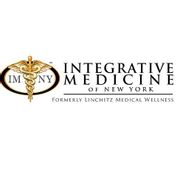What Are the Symptoms of COPD?

Chronic obstructive pulmonary disease, commonly called COPD, is a group of lung diseases that affects an estimated 30 million people in the United States. Many people who have it are completely unaware until the disease advances and symptoms worsen. For this reason, it is important to know the symptoms so you can seek treatment as soon as possible. Learn how to detect COPD early using the guide below.
What Is COPD?
Chronic obstructive pulmonary disease refers to multiple progressive lung diseases, including chronic bronchitis and emphysema. These conditions make it harder to breathe. In most cases, COPD develops as a result of frequent and prolonged inhalation of pollutants and toxins, such as fumes and chemicals found in many work environments. Smoking is the leading cause of COPD in the United States.
There is no known cure for this condition. Following diagnosis, treatment can help ease symptoms, slow the progression of the disease, and lead to a better quality of life.
Common Symptoms
 Those with COPD find it increasingly difficult to breathe as the condition progresses. At first, symptoms can be moderate, and may even be mistaken for a cold or mild flu.
Those with COPD find it increasingly difficult to breathe as the condition progresses. At first, symptoms can be moderate, and may even be mistaken for a cold or mild flu.
Early signs typically include a recurring cough, shortness of breath after exercise, and phlegm in the throat. As the disease progresses, the signs will become harder to ignore. Later stages of COPD may manifest these symptoms:
-
Chronic cough
-
Wheezing during exhalation
-
Tightness in the chest
-
Frequent respiratory infections
-
Weight loss
-
Fatigue and loss of energy
-
Coughing up mucus
Seek out medical care immediately if you have trouble catching your breath and cannot talk, feel dazed or disoriented, have a rapid heartbeat, or notice a blue-gray tint in your lips or fingernails.
If you’re experiencing any of the above symptoms, make an appointment at Integrative Medicine of New York, PLLC in Garden City, NY, for an evaluation. Their compassionate team offers personalized, holistic, and integrative medicine for patients throughout Long Island. They specialize in treating cancer and autoimmune diseases, with a focus on improving patients’ quality of life. Call (516) 759-4200 to schedule a consultation. For more information, take a look at the patient resources online.
About the Business
Have a question? Ask the experts!
Send your question

